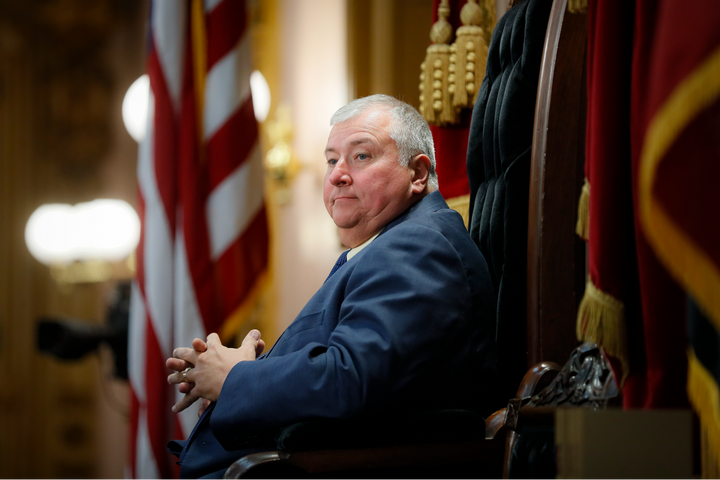Ohio is currently home to the largest public corruption case in the country, far outdoing cases playing out in usual suspects Illinois and New York in terms of the amount of money and powerful figures involved.
The federal investigation into a $61 million bribery scheme involves the Akron-based coal and nuclear power company formerly named FirstEnergy Solutions, a “dark money” advocacy group called Generation Now, and a group of defendants led by indicted former Ohio House Speaker Larry Householder—who won re-election in 2020 with 74% of the vote, despite being arrested by the FBI last summer on bribery charges. Update: On June 16, Householder was expelled from the Ohio House in a bipartisan vote of 75-21.
FirstEnergy said in April that it is cooperating with the Justice Department’s probe and is negotiating for a deferred prosecution agreement, which could entail further cooperation and fines.
Ohio House Bill 6 was a $1.3 billion bailout of two FirstEnergy-owned nuclear plants that was rushed through the General Assembly by Householder and his state Republican allies, and signed into law by Republican Gov. Mike DeWine on July 23, 2019. The bill also put Ohio ratepayers on the hook to bail out two aging coal plants while gutting renewable energy targets and energy efficiency standards.
Last month, in a civil lawsuit brought by investors, FirstEnergy’s attorneys filed documents arguing that the company’s massive donations to Generation Now were “issue-advocacy contributions” that are legally protected by the First Amendment. FirstEnergy’s lawyers said the securities litigation brought by shareholders and investors does not prove that there was a quid pro quo between Generation Now and Householder for the passage of HB 6.
Previously, a federal judge refused to throw out the cases against FirstEnergy’s board of directors, siding with investors in ruling, “This Court finds [the shareholders] have alleged by clear and convincing evidence that [the board] ‘knew or recklessly disregarded reports and red flags that FirstEnergy was paying massive amounts of illicit bribes’” to pass the legislation.

